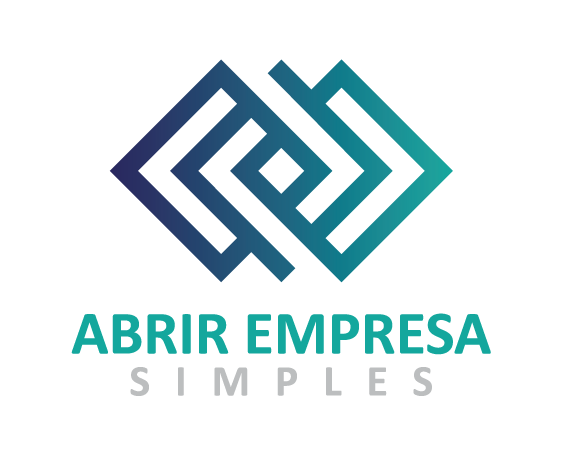Starting a new business can be an exciting and rewarding experience. However, it can also be filled with uncertainty and questions, especially if you’re a new entrepreneur. If you’re planning to open a company in 2024, there are several things you need to know before getting started.
In this article, we’ll address some of the main concerns that new entrepreneurs have when it comes to the abertura de empresa (company opening) process in 2024. From choosing the right business structure to hiring employees and securing financing, we’ve got you covered with the essential information you need to succeed.
Key Takeaways:
- Starting a business requires careful planning and research.
- Understanding the legal and financial aspects involved is crucial.
- Choosing the right business structure is important for success.
- Hiring employees and understanding tax obligations are vital for compliance.
- Effective marketing strategies can help you attract customers and grow your business.
Choosing the Right Business Structure
Starting a business can be an exciting but challenging endeavor. Before diving in, it’s crucial to choose the right business structure to suit your specific needs. A business structure determines how your company will be managed, taxed and financed, among other things. Here are the most common types of business structures:
| Business Structure | Description |
|---|---|
| Sole Proprietorship | A business owned and operated by one individual. The owner is personally liable for all debts and obligations. |
| Partnership | A business owned and operated by two or more individuals. The partners share the profits and losses, and are personally liable for all debts and obligations. |
| Limited Liability Company (LLC) | A business that combines the benefits of a corporation and partnership. Owners are not personally liable for business debts, and the business is taxed as a partnership. |
| Corporation | A separate legal entity owned by shareholders. The corporation is taxed on its income, and shareholders are not personally liable for business debts. |
Choosing the right business structure requires careful consideration of your personal financial situation, management style, and long-term goals. It’s important to consult with a legal or financial professional to determine which structure is best for your business. Keep in mind that your choice of business structure is not set in stone and can be changed as your business grows and evolves.
Registering Your Business
Congratulations on starting your own business! Now it’s time to make it official and register your business with the government. This process can vary by location and business structure, but there are some general steps that apply to most businesses.
Determine Your Business Structure
Before you can register your business, you’ll need to determine your business structure. The most common types of business structures include sole proprietorship, partnership, Limited Liability Company (LLC), and corporation. Each structure has its own legal requirements, tax implications, and personal liability protections, so it’s important to choose the one that’s right for you.
Choose Your Business Name
Your business name is an essential part of your brand and marketing strategy, so choose it wisely. Before registering your business, you’ll need to make sure that your chosen name is not already in use by another business. You can check with your Secretary of State’s office or use an online business name search tool to see if your name is available.
Obtain Necessary Permits and Licenses
Depending on your business type and location, you may need to obtain specific permits and licenses to legally operate. These can include zoning permits, occupational licenses, health permits, and more. Research your local requirements to ensure that you have all necessary permits and licenses before registering your business.
File Your Business Registration
Once you’ve completed these steps, it’s time to file your business registration paperwork. This typically includes articles of incorporation or organization, a business license application, and any necessary permits or certifications. You’ll also need to pay a fee, which can vary by location. Once your registration is approved, you’ll officially be a registered business owner!
“Registering your business can seem overwhelming, but it’s an essential step in building a successful company. By following these steps and seeking guidance when needed, you’ll be well on your way to achieving your entrepreneurial goals.”
Obtaining Business Licenses and Permits
When starting a business, it’s crucial to obtain the necessary business licenses and permits to operate legally and comply with local regulations. The specific licenses and permits you’ll need depend on the type of business you’re launching and your location.
To find out what licenses and permits you need, research your state and local requirements. You can typically find this information on your state government’s website or by contacting your local Chamber of Commerce.
Licenses vs Permits
It’s essential to understand the difference between licenses and permits. A business license gives you the legal right to operate a business in a particular location, while a permit grants temporary permission for a specific activity or use. For example, you might need a permit to serve alcohol or display a sign outside your business.
Examples of Licenses and Permits
| License/Permit Type | Description |
|---|---|
| General Business License | A license required to operate a business in a particular city or county. |
| Sales Tax Permit | A permit allowing your business to collect and remit sales tax on the products or services you sell. |
| Health Department Permit | A permit required for businesses that handle food, such as restaurants or grocery stores. |
| Building Permit | A permit required for any substantial construction or renovation work on your business property. |
Keep in mind that failing to obtain the required licenses and permits can result in fines, legal penalties, and even the closure of your business. So make sure you do your research and obtain all the necessary paperwork before opening your doors.
Hiring Employees: Legal Obligations and Best Practices
As your business grows, you may need to hire employees to help you manage your workload. However, before posting a job ad, it’s essential to understand the legal obligations and best practices for hiring employees. Here are some key things to keep in mind:
Legal Obligations
When hiring employees, you must comply with various legal requirements, such as:
| Requirement | Description |
|---|---|
| Employment Contract | Provide a written contract that outlines the terms and conditions of employment. |
| Taxes | Register as an employer with the IRS and file payroll taxes for each employee. |
| Benefits | Comply with federal and state laws regarding benefits, such as health insurance and retirement plans. |
Best Practices
While complying with legal obligations, you can also adopt best practices for hiring employees. Some examples include:
- Creating detailed job descriptions that outline job duties, qualifications, and expectations.
- Conducting thorough interviews that assess candidates’ skills and fit with your company culture.
- Offering competitive salaries and benefits packages to attract and retain top talent.
- Providing training and development opportunities to help employees grow and advance within the company.
By understanding and following these legal obligations and best practices, you can hire the right employees for your business and set them up for success. Remember, seeking professional advice and guidance when needed can also help you navigate the hiring process with confidence.
Understanding Tax Obligations
As a business owner, it’s crucial to understand your tax obligations to ensure compliance with legal requirements and avoid penalties. The most common taxes that businesses need to pay are:
| Tax Type | Description |
|---|---|
| Income Tax | A tax levied on the profits earned by your business |
| Sales Tax | A tax that customers pay on goods or services purchased from your business |
| Payroll Tax | A tax that businesses pay on the wages and salaries they pay to their employees |
To ensure you are meeting your tax obligations, it’s important to keep accurate records of your income and expenses, file the required tax returns on time, and pay your taxes in full and on time. Failure to do so can result in harsh penalties and legal consequences.
Working with a tax professional or using tax preparation software can be helpful in managing your tax obligations and ensuring compliance with tax laws and regulations.
Make sure to stay up-to-date with any changes in tax laws or regulations that may affect your business’s tax obligations, and seek professional advice if you have any questions or concerns.
Creating a Business Plan
One of the most critical steps in starting a business is creating a comprehensive business plan. A business plan outlines your goals, strategies, and financial projections. By taking the time to develop a solid business plan, you can increase your chances of success and secure financing for your new venture. (Note: SEO keyword “Business plan” is present.)
Key Components of a Business Plan
A business plan typically includes several sections, such as an executive summary, market analysis, marketing and sales strategy, management structure, and financial projections. Let’s take a closer look at each of these components:
| Component | Description |
|---|---|
| Executive Summary | A brief overview of your business plan highlighting the key points and objectives of your business. |
| Market Analysis | An assessment of your industry and competition, including market size, customer needs, and trends. |
| Marketing and Sales Strategy | A plan outlining how you will promote and sell your product or service to the target market. |
| Management Structure | A description of how your business will be structured, including the roles and responsibilities of your management team. |
| Financial Projections | A detailed financial plan, including revenue forecasts, profit and loss statements, and cash flow projections. |
It’s essential to ensure that each section is detailed and well-supported with data and research. Your business plan should be concise, yet comprehensive enough to persuade potential investors, partners, and lenders to support your business. (Note: SEO keyword “Business plan” is present.)
Remember, your business plan is a living document, meaning it should be updated regularly to reflect changes in your business and the market. By keeping your business plan up-to-date, you can stay on track towards achieving your goals and adjust your strategies as needed. (Note: SEO keyword “Business plan” is present.)
Securing Financing for Your Business
Starting a business often requires substantial capital to cover initial expenses and ongoing operations. Financing options, such as loans, grants, and investors, can help you secure the funds you need to get your business off the ground.
Loans
Loans are a common financing option for small businesses. They can be obtained from a variety of sources, including banks, credit unions, and online lenders. Before applying for a loan, it’s important to understand the terms and interest rates, as well as the collateral required to secure the loan.
| Lender | Interest Rate | Collateral Required |
|---|---|---|
| Bank A | 8% | Equipment |
| Online Lender B | 12% | None |
| Credit Union C | 6% | Real Estate |
Grants
Grants are another financing option for small businesses, and they don’t need to be repaid. However, they can be highly competitive and typically require a detailed application process. Grants can be obtained from different sources, such as government agencies, non-profits, and private organizations. It’s essential to research each grant and requirements thoroughly.
- Small Business Innovation Research Grants
- USDA Rural Business Development Grants
- Small Business Administration Grants
Investors
Investors are individuals or venture capitalist firms that provide capital in exchange for ownership equity or a share of profits. As a business owner, it’s essential to have a strong pitch deck that outlines your business plan, mission, goals, and potential for profitability.
“At XYZ Startups, we believe in investing in innovative and sustainable businesses that have a clear path to success. Our team has a proven track record of helping startups grow and reach their full potential.”
Securing financing for your business may seem daunting, but with thorough research and careful planning, you can find the right option for your needs. Consider working with a financial advisor or accountant to ensure you make informed decisions that align with your business goals.
Marketing and Promoting Your Business
Marketing and promoting your new business is crucial to attract customers and establish your brand in a competitive market. Here are some effective strategies you can use:
1. Develop a Strong Brand Identity
Creating a strong brand identity will set your business apart and make it easily recognizable to potential customers. Start by designing a logo, choosing a color scheme, and developing a unique voice and tone for your brand.
2. Use Social Media to Your Advantage
Social media platforms like Facebook, Twitter, and Instagram offer a cost-effective way to reach a large audience. Develop a social media strategy that aligns with your brand and post engaging content regularly to build a following.
3. Offer Special Promotions and Discounts
Offering special promotions and discounts is a great way to attract new customers and increase sales. Consider offering a discount to first-time customers or running a limited-time promotion to generate buzz.
4. Build Relationships with Influencers and Local Media
Partnering with local influencers and media outlets can help you reach a wider audience and build credibility for your business. Research relevant influencers and media outlets in your area and reach out to them to discuss potential collaborations.
5. Attend Industry Events and Trade Shows
Attending industry events and trade shows is a great way to network with potential customers and industry experts. Consider exhibiting at a trade show or attending events in your industry to build relationships and promote your business.
By implementing these marketing strategies, you can effectively promote your new business and attract customers in a competitive market. Remember to track your results and adjust your strategy as needed to maximize your success.
Conclusion
Starting a business in 2024 may seem daunting, but it doesn’t have to be. By following the steps outlined in this article, you can ensure a smooth and successful launch. Remember, it’s important to research and choose the right business structure, register your business with the appropriate agencies, obtain the necessary licenses and permits, and understand your tax obligations.
Additionally, creating a comprehensive business plan, securing financing, and developing effective marketing strategies can help set your business up for long-term success. Don’t be afraid to seek professional guidance and advice when needed, as starting a business is a big undertaking.
With determination, hard work, and a solid plan, you can turn your entrepreneurial dreams into a reality. Best of luck on your new venture!
FAQ
What are the main doubts that new entrepreneurs have regarding the process of opening a business in 2024?
New entrepreneurs often have questions about the steps and requirements involved in starting a business in 2024.
What types of business structures should I consider before starting my business?
Before starting a business, it’s essential to understand the different types of business structures available, such as sole proprietorship, partnership, LLC, and corporation, and choose the one that best suits your needs.
What are the necessary steps and requirements to register my new business?
To register your new business, you will need to research and comply with the specific steps and requirements set by the appropriate government agencies, such as acquiring a tax ID and registering with the secretary of state.
What licenses and permits do I need to operate my business legally?
The licenses and permits required depend on the nature of your business and the local regulations. You may need permits for zoning, health and safety, professional certifications, and sales tax licenses.
What are the legal obligations and best practices for hiring employees?
When hiring employees, it’s important to understand and comply with legal obligations such as providing employment contracts, withholding taxes, and offering benefits. Implementing best practices in recruitment, onboarding, and employee management is also crucial.
What tax obligations do I have as a business owner?
As a business owner, you have various tax obligations, including income tax, sales tax, and payroll taxes. It’s crucial to understand the tax laws and regulations applicable to your business and ensure compliance.
What are the key components of a comprehensive business plan?
A comprehensive business plan typically includes an executive summary, market analysis, company description, product/service offerings, marketing and sales strategies, financial projections, and funding requirements.
What options do I have for securing financing for my business?
You can explore various options to secure financing for your business, such as traditional bank loans, government grants, crowdfunding, angel investors, venture capital, or bootstrapping.
How can I effectively market and promote my new business?
Developing a marketing strategy tailored to your target audience is essential. Utilize various marketing channels, such as social media, search engine optimization (SEO), content marketing, paid advertising, and networking to promote your business and attract customers.







